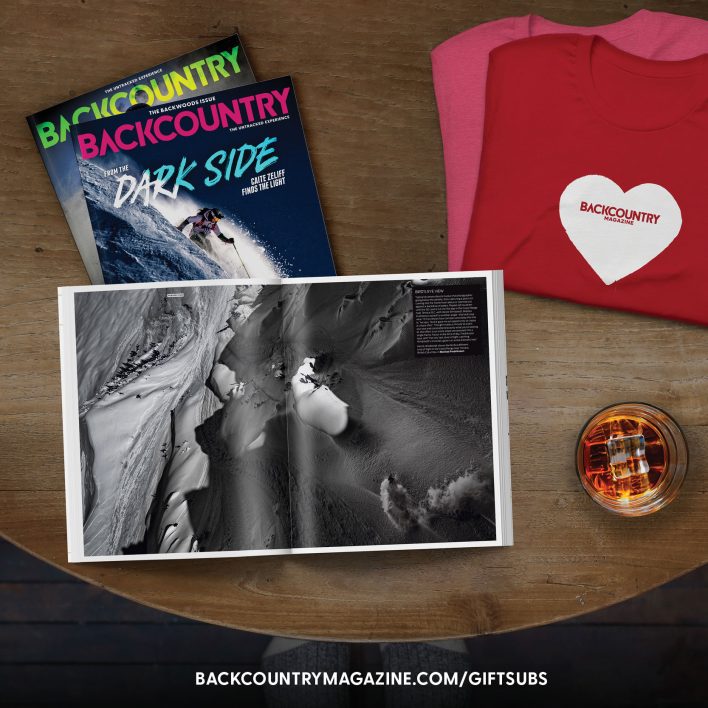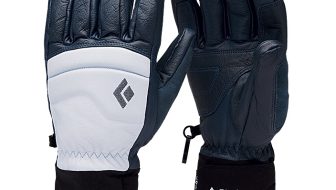Marty Schaffer is trying to make mountain safety and avalanche education more fun. A certified ski guide through the Association of Canadian Mountain Guides, the 28-year-old grew up at his family’s Revelstoke backcountry lodge, Blanket Glacier Chalet, began patrolling out of high school and was one of Canada’s youngest avalanche professionals at age 20. Now, along with childhood friends and pro skiers Chris Rubens and Eric Hjorleifson, he’s building his own safety curriculum, teaching teens backcountry skills and offering pro-taught courses through his guiding company, Capow!
Just before he flew into Blanket Glacier Chalet for a three-week stint of courses, we caught up with Schaffer to talk about his unconventional upbringing, throwing bombs and teaching Revelstoke’s youth. Here’s his story in his own words.
The funny thing about growing up: you don’t know of anything different. You assume that everyone else grows up with a five-meter snowpack where you walk out the door and always have to shovel, even to go out to the outhouse. I definitely can’t say I was raised by wolves or anything like that, though, ’cause I grew up in Canmore, went to school there and we spent maybe four to five weeks up at the lodge a winter.My parents, Al and Marion, were really into telemark skiing. Talk to anybody 50, 60, 70 years old and if they were telemark skiers, they know my parents. They bought the Blanket [Glacier Chalet] off a fellow in 1982. The owner needed to run back to Europe to save his marriage and gave the opportunity to my parents to buy it, and it just made sense. I’m basically doing the same thing as my parents, long story short. It’s just a different approach.
I always say that I was tricked into guiding because, even at a young age, my dad would hand me a group and I would just start showing them around. That fueled by desire to be a guide, but I was fully tricked into it. I just thought I was showing my dad’s friends around.
I was never really thinking that I was going to become a guide. I got out of high school and started ski patrolling. My first day, I threw a bomb and was like, “Oh my God, I’m going to do this for the rest of my life.” I moved to Revelstoke six years ago when the ski hill started up, and I got a job doing avalanche control. Knowing that I loved working with people, it was a natural transition into guiding, and I think that’s what’s really cool about being in the mountains. There’s always something next.
Thinking back to when I was 16 years old and what I did with guys like Chris [Rubens] and Eric [Hjorleifson]…. The stuff we got away with was ridiculous. It’s amazing we didn’t get killed. But we would have taken courses if the idols we looked up to had courses or there was anything at the time. Of course that’s motivation for me to develop a program for kids. And for me, that’s probably the most fulfilling guiding I do.
We ran a Rogers Pass freeride camp three years ago, had a ton of interest and realized there’s so much power in education that wasn’t handcuffed to specific avalanche education. The curriculum was based on whoever showed up. My biggest philosophy is creating an environment where you can ask any question. A lot of people come with different previous backcountry touring experience, and they’re not going to be set with this curriculum if we have to cover specific, classroom things.
There’s a lot of power in figuring out where to go and how to do it safely, given the conditions, the group and the objectives for the day. And it’s so much more than snowpack. It’s about where to get information and how to observe. It’s not about digging a pit to make a decision—that’s one of the last things we do as professionals. I’m creating these courses that are super fun to get the recreationalist to develop that technical base. People don’t take avalanche courses because they’re fascinated with avalanches, they take them because they want to have fun skiing and learn about how to do it safely.
Working with pro skiers adds a lot of legitimacy. Plus these guys are really good with people; they’re really good at instructing. Although they’re not guides, they’re super knowledgeable in the backcountry. I’ve always thought that I’ve been in this cool position where I can bring together these people that have really cool stories and really cool experiences. I’m just sort of stuck in the middle bringing this together and it’s so cool.
Kids are sponges. And we’re absolutely teaching them skills that are setting them up for success. It’s a different education. It’s not like it’s a traditional avalanche course at 15 years old. They’re hitting pillows, not necessarily sending a complex, glaciated terrain feature. But we’re teaching things like scoping lines from the bottom, where’s your escape route and if your buddy’s filming, where are you going to be set up—it’s all those little things that go a long way.
Last year, Rubens, Hoji and I did a camp with 12 amazing kids. They got so much out of it. Halfway through the season we had a terrible avalanche cycle, and I got a phone call from a parent. There was a massive in Kananaskas. Three people were buried—this kid we taught’s best friend, his best friend’s dad and a family friend. He fully rocked the scenario, dug them all out, and pulled his best friend out last, a meter and a half down. His mom was in tears and said, whatever you taught them there, he saved my husband and my son. So in terms of motivation to run these camps? Yeah, I think that’s worth it. It doesn’t matter how much I get paid, there’s fulfillment in that right there.
—
This story first appeared in the February 2015 issue. To read more stories like it, subscribe here.


![Marty Schaffer, backcountry born and bred. [Photo] Bruno Long](https://backcountrymagazine.com/wp-content/uploads/2015/04/schaffer_main2.jpg)








Related posts: